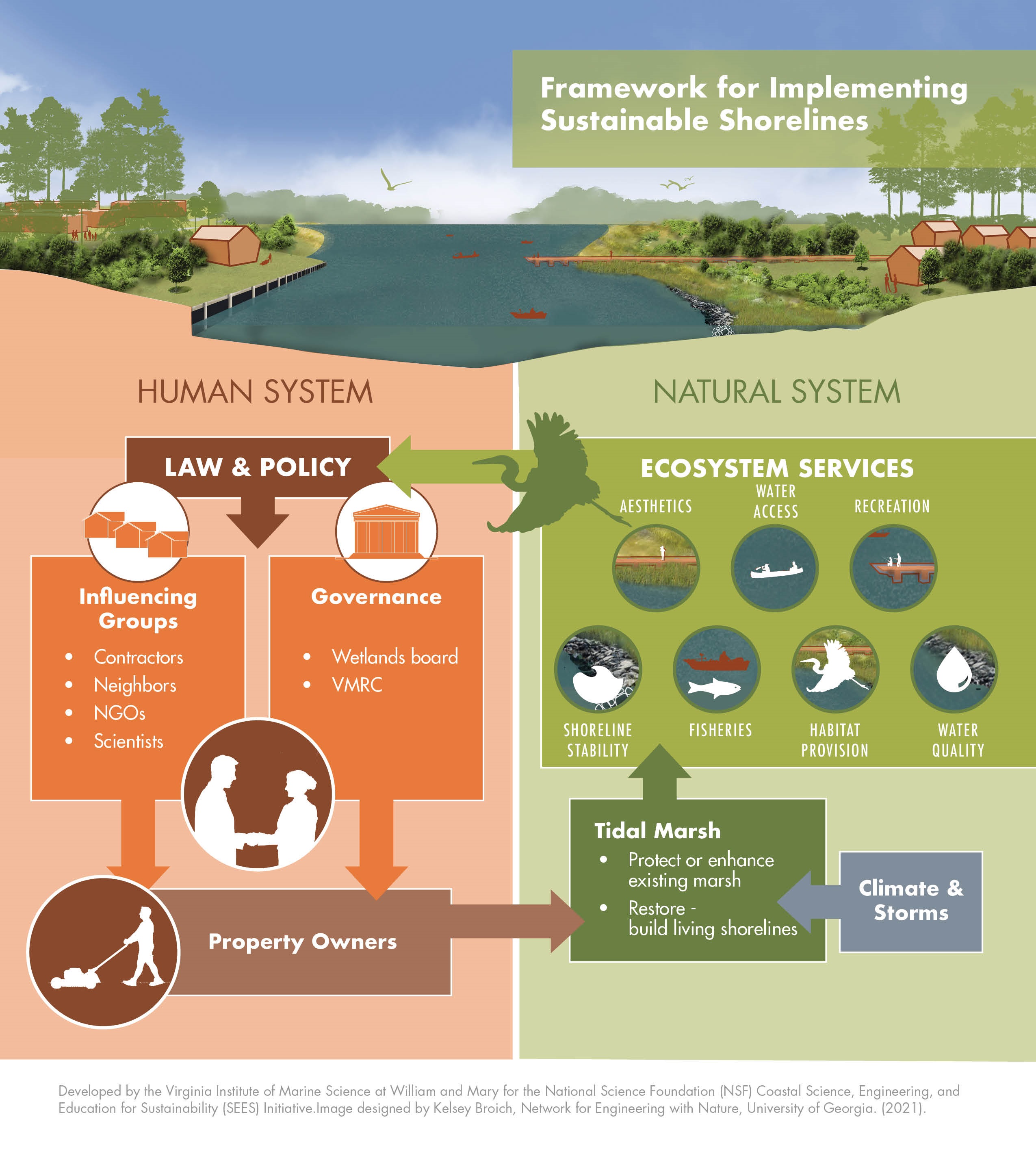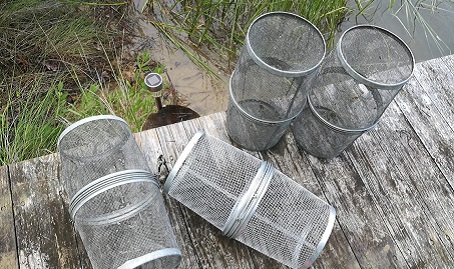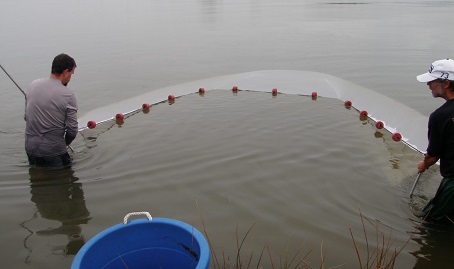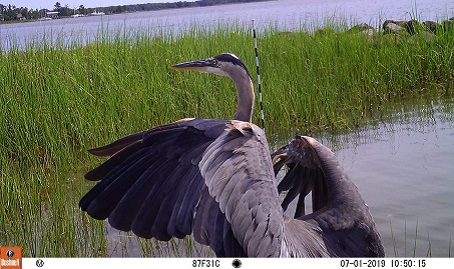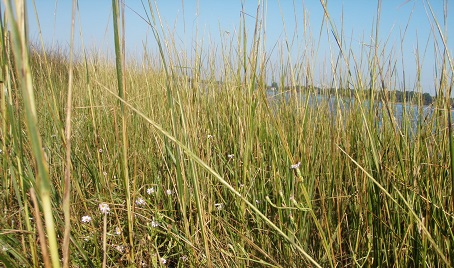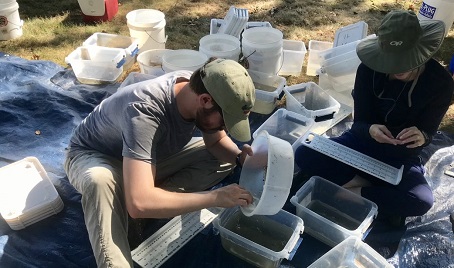Sustainability in Chesapeake Bay Shorescapes:
CLIMATE CHANGE, MANAGEMENT DECISIONS, AND ECOLOGICAL FUNCTIONS
Worldwide, rising seas threaten coastal community economic vitality, lifestyles and livelihoods, and wellbeing. As climate change pressures intensify, short-sighted shoreline management policies and practices will have environmental consequences on the larger Bay system, cumulating over space and time to affect the benefits society derives from the system. Natural and nature-based approaches to shoreline protection, henceforth living shorelines, are being encouraged through various government policies as alternatives to armoring that not only provide protective services but also can adapt to rising seas and provide numerous non-protective societal and ecosystem benefits. These approaches include both conserving and restoring tidal marshes. While implementation of these practices has increased over the past decade, armoring is still the most common choice of property owners. We provide insights into the possible futures of Chesapeake Bay shorescapes under climate change and different shoreline management strategies, and identify social intervention points that may foster more sustainable shoreline decision making and policies to enhance short- and long-term ecosystem service provisions and benefits.
GOAL: Characterize the Shorescape Social-Ecological System (SES) to determine what elements have the greatest influence on attainment of sustainable outcomes (namely maximizing ecosystem services in Virginia moving forward)
This NSF-funded cross-disciplinary project engaged social scientists, economists, sociologists, demographers, physical and geospatial modelers, ecologists, biogeochemists and legal scholars to apply an SES approach to describe the relative importance of various interactions between the Bay system, shoreline resources (marshes and the ecosystem services they provide), law and policy (shoreline and marsh protection), resource users (property owners), influencing groups (nonprofit organizations and marine contractors), governance of resource usage (local and state policy makers and resource managers) to inform decision-making for sustainability and enhancement of ecosystem services.
 PROJECT INVESTIGATORS:
PROJECT INVESTIGATORS:
VIMS: Carl Hershner, Donna Bilkovic, Molly Mitchell, Joseph Zhang, Karinna Nunez, Julie Herman, Jian Shen, Amanda Guthrie, and Robert Isdell
William & Mary: Randy Chambers, Matthias Leu, Sarah Stafford, Bob Galvin, and Sam Mason
ODU: Michelle Covi and Wie Yusuf
UGA: Shana Jones
Graphics Credit: Kelsey Broich, Network for Engineering with Nature, UGA (2021)
For more information, please contact [[v|donnab, Donna Bilkovic]]
This material is based upon work supported by the National Science Foundation under Grant Number 1600131.


